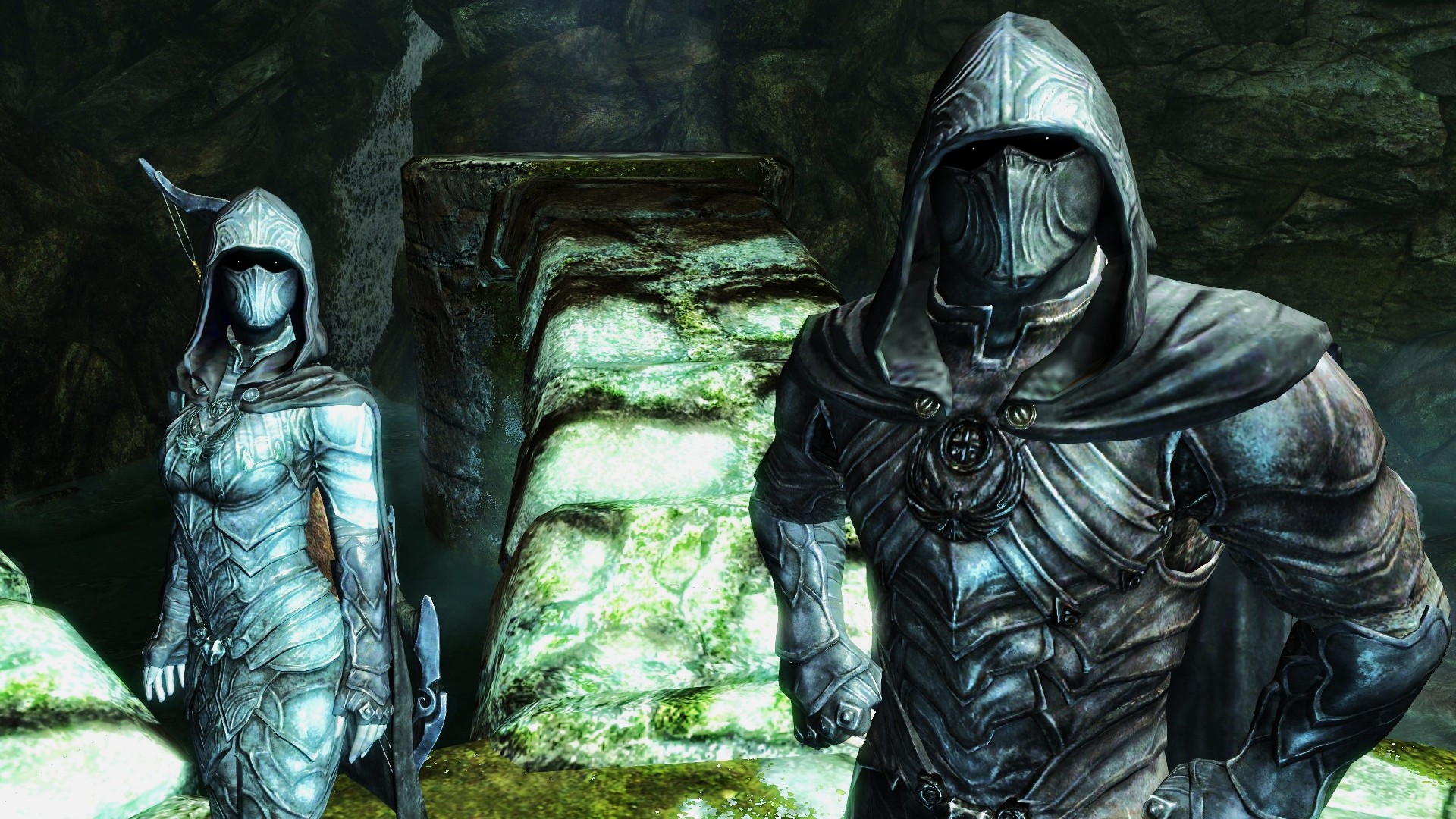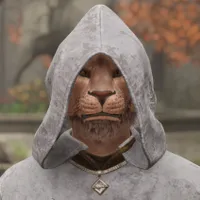'A big document of stealth' requested by Todd Howard from a designer of one of the best stealth games of all time was the blueprint for Skyrim's most beloved playstyle
Garrett from Thief crouch walked so Dark Brotherhood assassins could run.

Keep up to date with the most important stories and the best deals, as picked by the PC Gamer team.
You are now subscribed
Your newsletter sign-up was successful
Want to add more newsletters?

Every Friday
GamesRadar+
Your weekly update on everything you could ever want to know about the games you already love, games we know you're going to love in the near future, and tales from the communities that surround them.

Every Thursday
GTA 6 O'clock
Our special GTA 6 newsletter, with breaking news, insider info, and rumor analysis from the award-winning GTA 6 O'clock experts.

Every Friday
Knowledge
From the creators of Edge: A weekly videogame industry newsletter with analysis from expert writers, guidance from professionals, and insight into what's on the horizon.

Every Thursday
The Setup
Hardware nerds unite, sign up to our free tech newsletter for a weekly digest of the hottest new tech, the latest gadgets on the test bench, and much more.

Every Wednesday
Switch 2 Spotlight
Sign up to our new Switch 2 newsletter, where we bring you the latest talking points on Nintendo's new console each week, bring you up to date on the news, and recommend what games to play.

Every Saturday
The Watchlist
Subscribe for a weekly digest of the movie and TV news that matters, direct to your inbox. From first-look trailers, interviews, reviews and explainers, we've got you covered.

Once a month
SFX
Get sneak previews, exclusive competitions and details of special events each month!
I love stealth games, and I love playing a sneaky guy in bigger RPGs: Fallout, The Elder Scrolls, Cyberpunk. You best believe that, when given the option, I'm crouch walking for 80 hours straight. I'm not alone in that preference either: The Stealth Archer in Skyrim, which plays exactly how it sounds, is a memetic, fan-favorite playstyle in Bethesda's smash hit RPG, with guides, analysis, and love letters galore on YouTube and Reddit.
Being obsessed with stealth in games, particularly Bethesda RPGs, I've always wondered about the Pagliarulo Connection: Bethesda's design director, who has contributed to all of the studio's games since Oblivion, got his development start at Looking Glass Studios, the legendary '90s developer of Ultima Underworld, System Shock, and Thief.
Pagliarulo in particular designed two of Thief 2: The Metal Age's most fun levels: Life of the Party, a swanky gala infiltration that begins on the open rooftops of the surrounding district, and Precious Cargo, a pirate's cove hiding a steampunk submarine you have to stow away on. I got the chance to talk to Pagliarulo for an upcoming PC Gamer print retrospective about Bethesda's work on the Fallout series, and I just had to ask about how Looking Glass influenced his work.
"The two years I spent at Looking Glass were amazing, it was incredible," said Pagliarulo. "It was almost like grad school for me. I call it my Good Will Hunting phase. I didn't look like Matt Damon, but I was the kid from South Boston with all the MIT nerds thrown into the deep end, and it was just such an education.
"They were the best people, and they were so patient, and just so in love with what they were doing, so incredibly creative."
The Boston-based Looking Glass (initially Blue Sky Productions) was founded by Origin Systems (Ultima, Wing Commander) developer Paul Neurath, and drew on MIT graduates for its first staff members—something that helps explain its games' cerebral sensibilities and exacting simulations. In another timeline, id cofounder John Romero might have helped start Looking Glass, while Pagliarulo, before becoming a developer, was editor of gaming website Adrenaline Vault.
"Thief was the first game that I played with headphones on in a dark room. I love that game so much, and so it was impossible for me not to bring that stuff over," Pagliarulo said. "In fact, one of the first things I did when I was hired here, Todd asked me, 'Hey, what do you think about the stealth in our games and stuff? Can you write something up?'
Keep up to date with the most important stories and the best deals, as picked by the PC Gamer team.
"So I did an analysis. I wrote up a big document of stealth in 20 different games, how they compared, and what we could do for stealth in Oblivion."
Speaking as a massive loser, I would love to read that stealth games analysis, which Pagliarulo said might still be tucked away in his office somewhere. One of the 20 games in question, according to Pagliarulo, was Hidden and Dangerous, a 1999 tactical shooter where you parachute behind German lines in 1941 to get up to assorted military hijinks and criminal mischief. It's actually still available for purchase on both Steam and GOG.
While Skyrim is where the Stealth Archer blew up, and Morrowind and Daggerfall had stealth systems, Oblivion is where the playstyle started being fun. The 2006 RPG had consistent sound and line of sight rules the player could account for, clear indication of whether you were hidden or not, as well as stealth-focused Thieves Guild and Dark Brotherhood quests that took advantage of the new system.
"The thing is, Thief is a deep [game], a lot of depth, not a lot of width. It focuses on one thing: It's a stealth simulation." Pagliarulo said of the distinction between Thief and The Elder Scrolls. "Bethesda's games have been accused of being 'an inch deep and a mile wide'—which I think is an insult, honestly, because I think there's a lot of depth there—but we do provide a lot of different systems.
"Because we're a simulation, we do offer crime and stealth, and a lot of games don't offer that, so we were like, how do we get it as good as it can be, but still have time to do all these other systems and stuff. So it's that balancing act."
That does get at the heart of what makes sneaking in Bethesda games special, even compared to more intricate stealth sims: It's fun to have a choice, and to define the identity of your Orc or Dark Elf or whoever in opposition to the dozens of other characters they could have been. And it's a balm to my soul to see the DNA of the long-departed and never financially successful Looking Glass end up in some of the most popular videogames of all time.
"I'm really happy with where we've landed on [stealth gameplay] over the years," Pagliarulo concluded. "And I mean, look at the Stealth Archer—the Stealth Archer in Skyrim is proof of that. I think it's just so rewarding to see those characters. So, yeah, the lessons I learned [at Looking Glass] have been with me my whole life, 100%."
Oblivion console commands: Cheats new and old
Oblivion lockpicks: Where and how to use them
Oblivion vampirism cure: Rid yourself of the affliction
Oblivion thieves guild: How to join the crew
Oblivion persuasion: Master the minigame
Ted has been thinking about PC games and bothering anyone who would listen with his thoughts on them ever since he booted up his sister's copy of Neverwinter Nights on the family computer. He is obsessed with all things CRPG and CRPG-adjacent, but has also covered esports, modding, and rare game collecting. When he's not playing or writing about games, you can find Ted lifting weights on his back porch. You can follow Ted on Bluesky.
You must confirm your public display name before commenting
Please logout and then login again, you will then be prompted to enter your display name.


